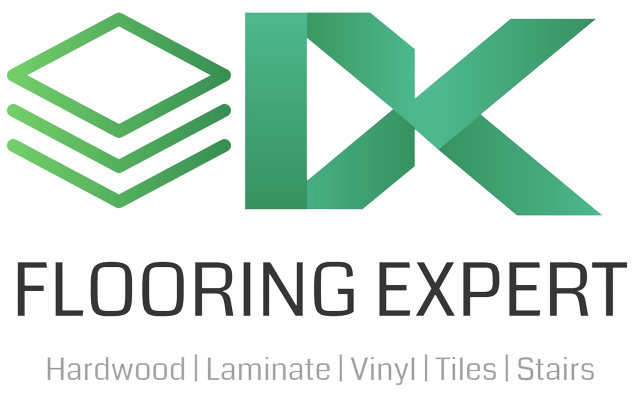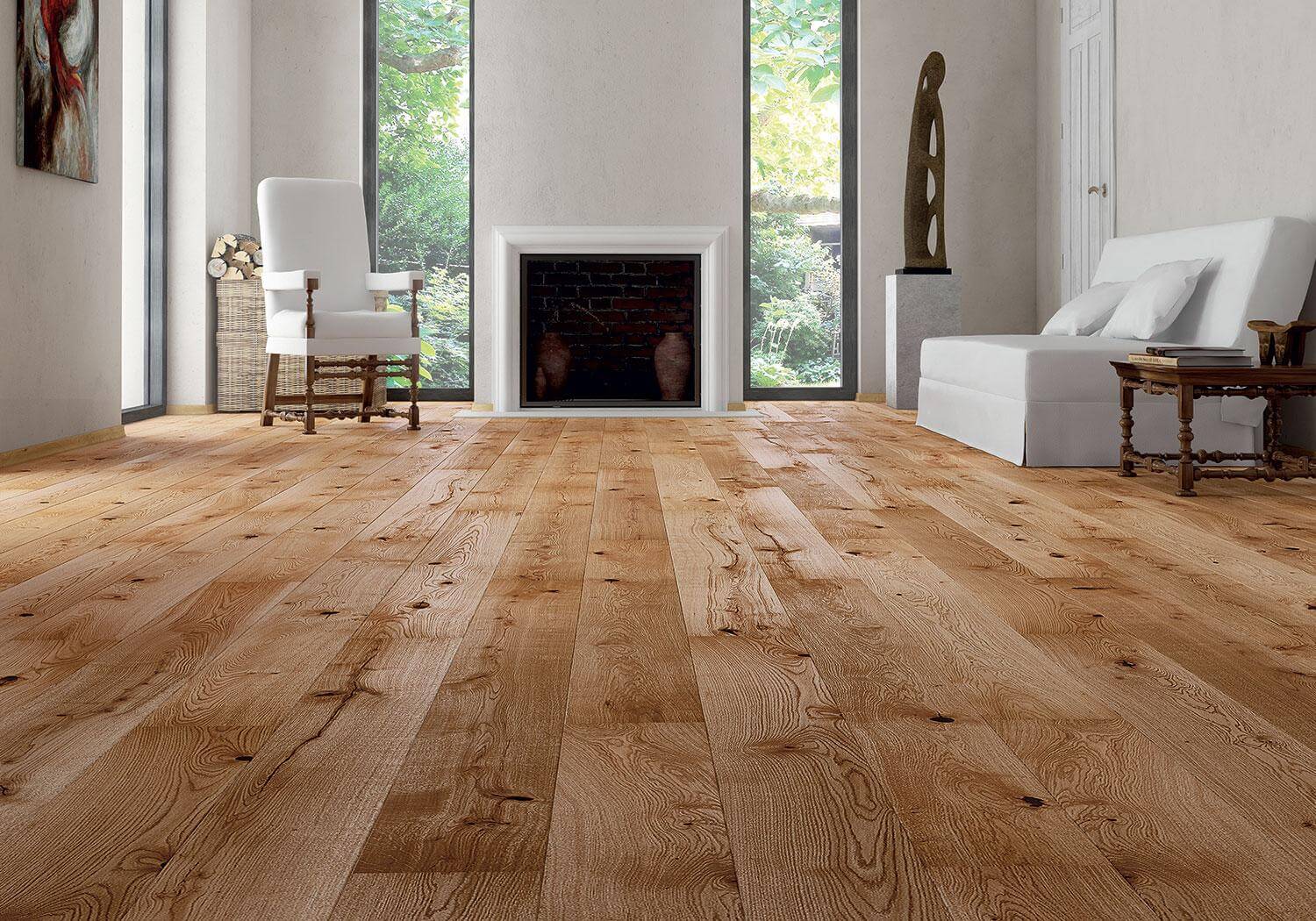When it comes to selecting flooring for your home, the choices are vast, and each option brings its own unique benefits. One increasingly popular choice among homeowners is engineered wood flooring. This type of flooring combines the timeless beauty of hardwood with enhanced durability and versatility, making it an excellent option for a wide range of homes.
In this blog, we’ll explore why engineered wood flooring might be the ideal choice for residences, especially in climates like Ontario’s where temperature and humidity fluctuations can affect traditional hardwood floors. We’ll also compare it with other flooring options like hardwood, laminate, and vinyl to provide a comprehensive guide for homeowners.
What is Engineered Wood Flooring?
Engineered wood flooring consists of a real hardwood veneer layer on top, with multiple layers of plywood or fiberboard beneath it. This construction makes engineered wood more stable and less prone to warping compared to solid hardwood, especially in areas with changing temperature and humidity levels. The hardwood top layer gives engineered wood the same look and feel as solid hardwood, but at a more affordable price.
Here are some characteristics that make engineered wood flooring stand out:
- Durability: The multi-layer construction makes it more resistant to expansion and contraction caused by humidity.
- Versatility: Can be installed in areas where traditional hardwood might not be suitable, like basements or over radiant heating.
- Eco-friendly: Uses less natural hardwood than traditional planks, making it a more sustainable option.
Benefits of Engineered Wood Flooring for Residences
a) Durability and Longevity
One of the biggest advantages of engineered wood flooring is its enhanced durability. The layered construction provides greater stability, making it less susceptible to warping, cupping, or splitting over time. This is particularly important in areas like Ontario, where humidity levels can fluctuate drastically between seasons.
Compared to solid hardwood, engineered wood is more resistant to environmental changes, making it ideal for installation in moisture-prone areas like basements, kitchens, or even bathrooms. The top hardwood veneer also ensures that engineered wood flooring can be sanded and refinished, just like traditional hardwood, extending its lifespan.
b) Affordability Without Compromising on Aesthetics
For homeowners who want the luxury of real wood without the hefty price tag, engineered wood flooring is a more budget-friendly option. The cost savings come from the fact that engineered wood uses less hardwood material overall, without sacrificing the authentic appearance of natural wood.
For example, if you love the look of oak hardwood flooring or maple hardwood flooring, you can still achieve the same aesthetic with engineered versions of these woods at a more affordable price. Dk Flooring Expert offers a variety of finishes and styles to match any home décor, ensuring you don’t have to compromise on appearance for cost savings.
c) Wide Variety of Styles and Finishes
Just like traditional hardwood, engineered wood comes in a range of species, stains, and finishes. Whether you prefer the light, airy look of oak hardwood flooring or the rich, dark tones of maple hardwood flooring, you’ll find an engineered version to suit your taste.
Moreover, engineered wood flooring is available in different plank widths and lengths, giving you flexibility in creating your desired look. From rustic, wide-plank floors to sleek, narrow boards for a contemporary feel, engineered wood offers a variety of design options to suit any style.
Engineered Wood Flooring vs. Other Flooring Options
While engineered wood flooring has plenty of advantages, it’s important to compare it to other popular flooring choices like hardwood, laminate, and vinyl to determine which option is best for your home.
a) Engineered Wood Flooring vs. Solid Hardwood Flooring
Solid hardwood flooring is a classic choice that has been popular for centuries. However, it does have its limitations, particularly when it comes to installation in humid areas or on top of concrete. Engineered wood flooring addresses these issues, making it a more versatile option.
Pros of Engineered Wood over Solid Hardwood:
- Moisture resistance: The plywood core makes engineered wood less prone to warping or cupping in damp conditions.
- Installation flexibility: Can be installed in basements and over radiant heating systems where solid hardwood cannot.
- Cost-effective: Uses less natural wood, resulting in a more budget-friendly option without compromising on appearance.
Cons:
- Refinishing limits: While engineered wood can be refinished, it can only be sanded a limited number of times (depending on the thickness of the top veneer).
b) Engineered Wood Flooring vs. Laminate Flooring
Laminate flooring is another popular option due to its affordability and easy maintenance. However, unlike engineered wood, laminate is not made from real wood, and its appearance may not be as authentic as engineered wood’s hardwood veneer.
Pros of Engineered Wood over Laminate Flooring:
- Real wood look and feel: Engineered wood offers the beauty of real hardwood, while laminate is a synthetic material.
- Refinishing: Engineered wood can be sanded and refinished, whereas laminate cannot be repaired once damaged.
- Durability: While laminate is scratch-resistant, it is less durable in high-moisture environments compared to engineered wood.
Cons:
- Cost: Laminate flooring is generally more affordable than engineered wood.
- Scratch resistance: Some laminate floors may offer better scratch resistance than engineered wood.
c) Engineered Wood Flooring vs. Vinyl Flooring
Vinyl flooring has gained popularity due to its water resistance and affordability. Luxury vinyl flooring offers impressive designs that mimic the look of wood, but engineered wood remains the preferred choice for homeowners who want a natural wood product.
Pros of Engineered Wood over Vinyl Flooring:
- Natural wood: Engineered wood has a real hardwood top layer, providing a genuine wood aesthetic that vinyl cannot replicate.
- Resale value: Homes with engineered wood floors tend to have higher resale value compared to those with vinyl flooring.
- Eco-friendliness: Engineered wood is considered a more sustainable option, especially when compared to synthetic vinyl products.
Cons:
- Water resistance: Vinyl flooring is more water-resistant than engineered wood, making it better suited for areas like bathrooms and laundry rooms.
- Price: Vinyl is typically less expensive than engineered wood.
Installation Flexibility
One of the great benefits of engineered wood flooring is its installation versatility. Engineered wood can be installed in various ways, depending on the room’s requirements and the type of subfloor you have. Here are the most common installation methods:
- Glue-down installation: This method is suitable for concrete subfloors, such as those found in basements. It provides a strong, durable bond and helps reduce noise.
- Floating floor installation: Ideal for homes with radiant heating, floating floors do not need to be attached to the subfloor. Instead, the planks are clicked together and “float” above the subfloor.
- Nail-down installation: Similar to traditional hardwood, this method is best for homes with plywood or wooden subfloors.
By offering multiple installation methods, engineered wood can be adapted to suit any room in your home, including areas where solid hardwood cannot be used.
Eco-Friendly and Sustainable Option
Homeowners increasingly look for environmentally friendly materials when renovating their homes. Engineered wood flooring offers a more sustainable alternative to traditional hardwood. By using a hardwood veneer and layers of plywood or fiberboard, less natural wood is required to create engineered floors. Additionally, many manufacturers source their wood from responsibly managed forests, making it a greener choice.
If sustainability is a priority for you, Dk Flooring Expert offers a wide selection of eco-friendly engineered wood flooring options that help reduce the environmental impact of your flooring choices.
Maintaining Engineered Wood Flooring
Maintaining engineered wood flooring is straightforward, and with proper care, it can last for decades. Here are a few tips to keep your engineered floors looking great:
- Regular sweeping or vacuuming: Dust and dirt can scratch the surface, so make sure to clean your floors regularly.
- Avoid excessive moisture: While engineered wood is more moisture-resistant than solid hardwood, it’s still important to clean up spills immediately to prevent damage.
- Use protective pads: Place felt pads under furniture legs to avoid scratching the surface.
- Refinishing: Depending on the thickness of the top hardwood layer, you can refinish your engineered floors a few times during their lifetime to restore their original beauty.
Conclusion
When it comes to choosing flooring for your home, engineered wood flooring offers a perfect blend of beauty, durability, and affordability. Its ability to withstand moisture and temperature changes makes it an ideal option for Ontario homes, where seasonal fluctuations can affect other flooring types.
Whether you’re looking to install floors in a high-moisture area like a basement or simply want the luxurious look of oak hardwood or maple hardwood at a more affordable price, engineered wood is a fantastic choice. With its wide range of styles and finishes, eco-friendly construction, and easy maintenance, engineered wood flooring provides a versatile and long-lasting solution for any home.
If you’re considering a flooring upgrade, let Dk Flooring Expert help you find the perfect engineered wood flooring to suit your style and needs. Our wide selection of high-quality flooring options ensures you’ll find the perfect match for your home’s aesthetic while staying within your budget.



